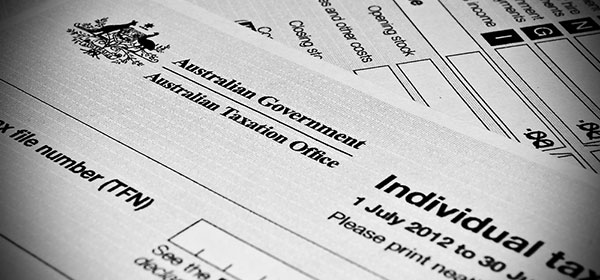Every year before 30 June, the Australian Tax Office (ATO) alerts the now 10 million individual taxpayers about the areas it will be keenly watching this year.
Whether the ATO actually follows through on its threat is debatable. However, when preparing your tax return for the 2017–18 financial year, you should be very careful about making claims in some key areas – such as work-related expenses, and cryptocurrency earnings, the home office (a regular) and earnings from new-ish activities such as Uber driving.
The ATO has warned that the extra $130 million it has received from the federal budget has it better prepared than ever to spot unusual claims. Social media posts, particularly showing holidays or purchases that don’t tally with declared income, are very handy in that regard.
It says there are specific tax and superannuation issues for anyone over 55, and that “those issues may vary depending on whether you are still working, planning to retire, about to make the transition into retirement or already retired”.
What are the key expenses you can claim?
The home office
For full-time and part-time workers, phone and internet and energy bills may be claimed for a home office, with the proportion determined by the area of your home that the office occupies. And the office does need to be dedicated space and not the kitchen table.
Home office expenses made up the second-largest claims category in the 2016–17 financial year when 6.7 million people claimed $7.9 billion.
A person claiming for a home office must be able to show that additional household expenses were involved, ATO assistant commissioner Kath Anderson told the ABC’s news website.
Phone and internet expenses do qualify for deductions, but only the proportion used for work purposes.
Be ready with supportive evidence if you claim for Netflix, Foxtel or other streaming expenses, Ms Anderson said.
“We had a case of a teacher once who decided that they should claim their whole Foxtel because they needed to keep up with the things that their students would be watching,” she said. “Needless to say, that claim didn’t get through.”
Cars and travel costs
Car and travel expenses make up the biggest proportion of work-related claims, with 3.75 million people claiming $8.8 billion last financial year.
You can claim work-related travel of up to 5000km at a rate of 66 cents per kilometre, provided you can show how the amount was calculated, or you can keep a logbook to claim additional amounts.
Ms Anderson warned that taxpayers could not claim travel to and from work.
“For most of us, that’s actually considered a private expense,” she said.
“We’ve seen quite a few examples of people claiming 5000km because they think it’s a standard deduction or a safe amount that everyone’s entitled to.”
Travel expenses can be claimed for work trips – after private expenses are deducted from the total.
“We did have someone who … was travelling overseas on both business and (personal travel), but claiming the whole lot as business,” Ms Anderson said.
“He went on a skiing trip and he claimed $25,000, but had to pay back $23,000.”
Clothing, laundry and dry-cleaning
The third-largest claims category, clothing and laundry, has grown by almost 20 per cent in the past five years, with about six million people claiming close to $1.8 billion in 2016–17.
Ms Anderson said the “biggest myth” was that everyone was entitled to claim $150 in this category. The ATO advises that clothes with logos and protective clothing may be claimed, but conventional workwear cannot.
“Some people claim [clothes] because their boss says they have to wear a particular colour or particular style,” she said.
“Other people might be claiming them because they work in retail fashion and they have to wear something from the latest line.
“You can’t claim plain clothing, even if your boss told you to wear it or even if you only ever wear it to work.”
The ATO has three golden rules:
- the money must have been spent by the person making the claim (and must not have been reimbursed)
- the expense must be directly related to the person’s income
- the person must have a record to substantiate how the claim was calculated.
If the ATO contacts you requesting further information, an audit might be just around the corner. An audit may be quick or extensive.
Read more at ABC
Are you familiar with what you can claim for full-time or part-time work from home? Do you get assistance from an accountant?
Related articles:
Get tax right to triple pension
ATO stalking social media
ATO has billions to give away

